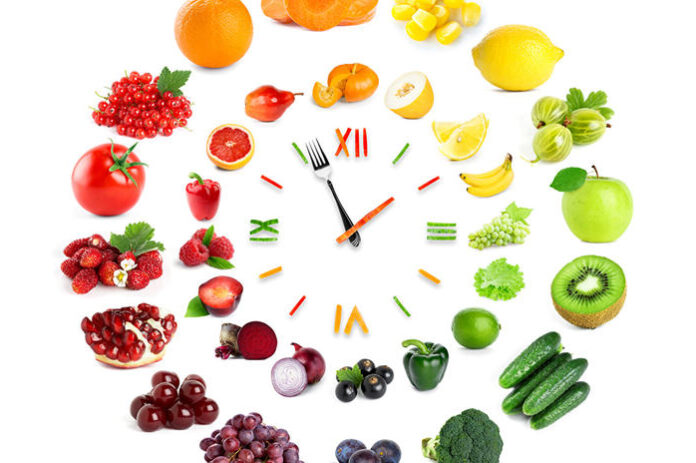Timing of daily calorie loading affects appetite and hunger responses without changes in energy metabolism in healthy subjects with obesity
Summary
Morning loaded calorie intake in humans has been advocated as a dietary strategy to improve weight loss. This is also supported by animal studies suggesting time of eating can prevent weight gain. However, the underlying mechanisms through which timing of eating could promote weight loss in humans are unclear. In a randomized crossover trial (NCT03305237), 30 subjects with obesity/overweight underwent two 4-week calorie-restricted but isoenergetic weight loss diets, with morning loaded or evening loaded calories (45%:35%:20% versus 20%:35%:45% calories at breakfast, lunch, and dinner, respectively). We demonstrate no differences in total daily energy expenditure or resting metabolic rate related to the timing of calorie distribution, and no difference in weight loss. Participants consuming the morning loaded diet reported significantly lower hunger. Thus, morning loaded intake (big breakfast) may assist with compliance to weight loss regime through a greater suppression of appetite.
Highlights
- Morning loaded (ML) versus evening loaded (EL) energy intake diets were compared
- Both diets produced similar weight loss, with no differences in energy metabolism
- ML energy intake resulted in lower daily subjective appetite and hunger
- Behavioral changes (reduced intake) likely explain weight loss benefits of ML diets
Link: https://www.cell.com/cell-metabolism/fulltext/S1550-4131(22)00344-8
Authors:
Leonie C. Ruddick-Collins
Peter J. Morgan
Claire L. Fyfe
Klaas R. Westerterp
Jonathan D. Johnston
Alexandra M. Johnstone
Date: Published:September 09, 2022
Nutrigenomics Institute is not responsible for the comments and opinions included in this article






